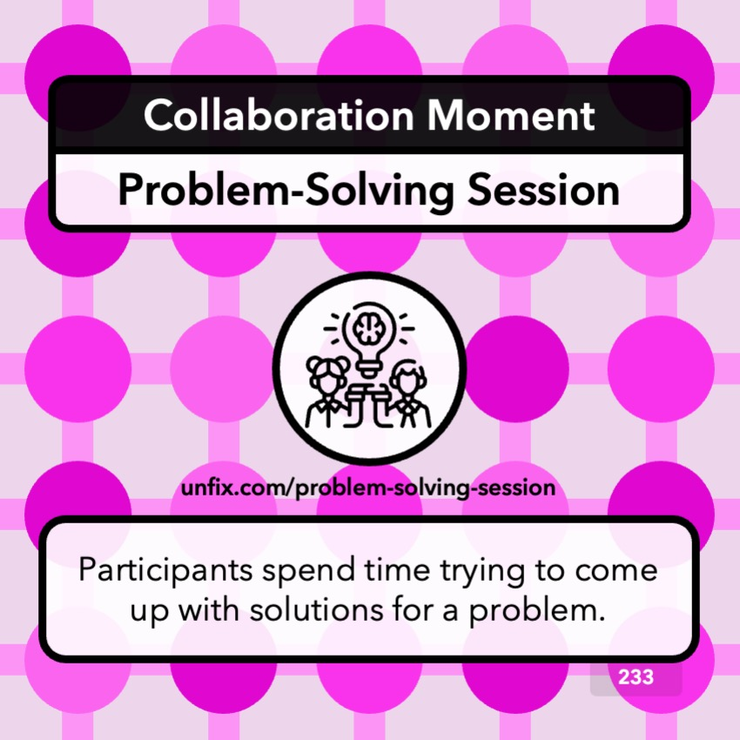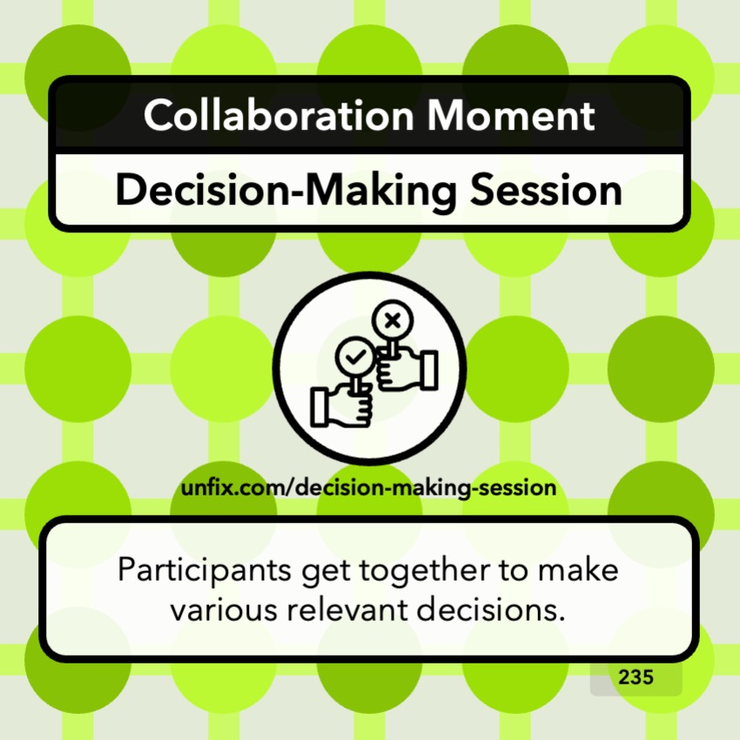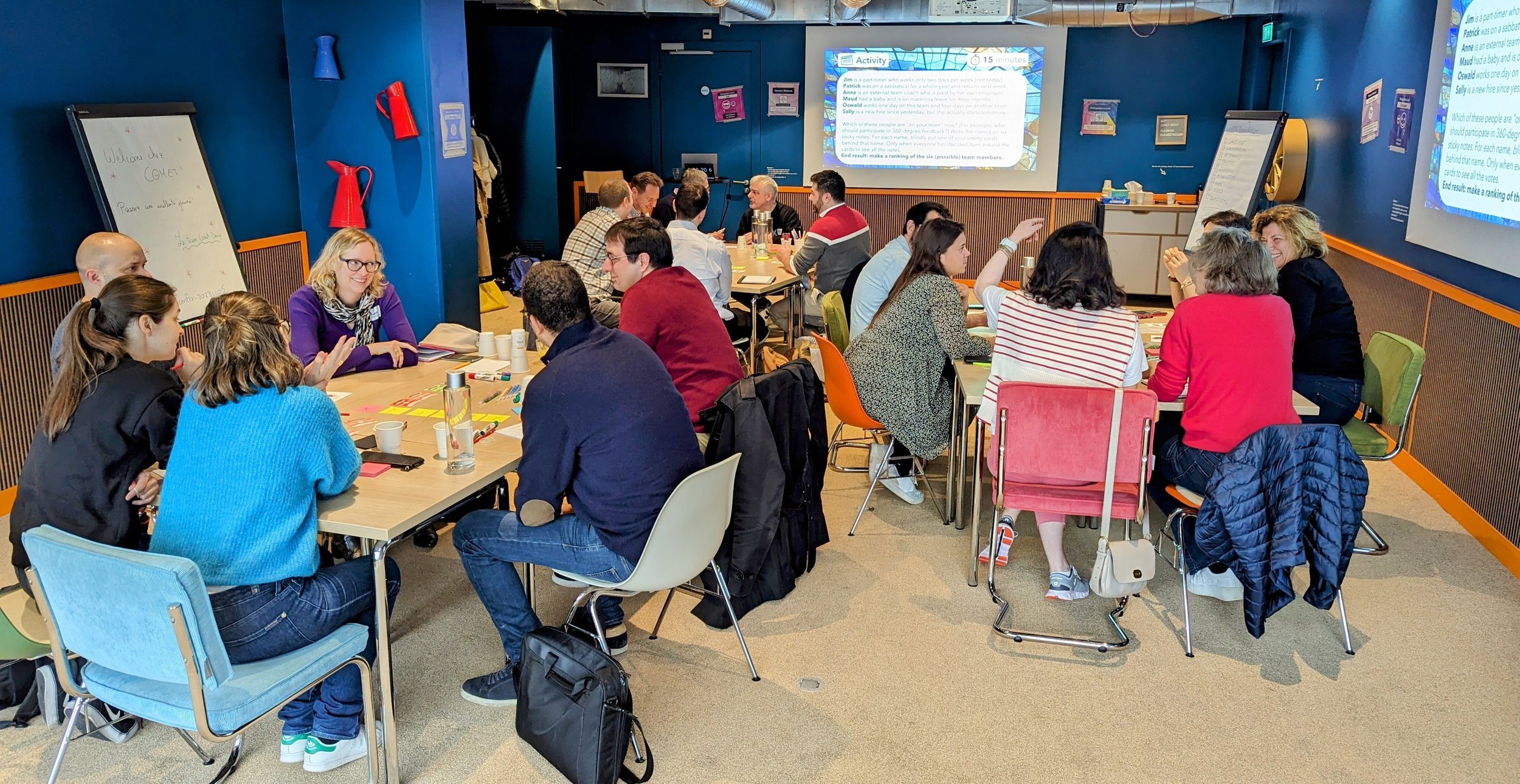
Collaboration Moments
When people work together, they need moments of collaboration with different intents and purposes.
Collaboration Moments: Introduction Session • Team-Building Session • Sense-Making Session • Strategic Session • Planning Session • Check-in Session • Tactical Session • Review Session • Idea-Generation Session • Problem-Solving Session • Information-Sharing Session • Decision-Making Session • Coordination Session • Retrospective Session • Learning Session • Training Session
Purpose
When people work together, they need moments of collaboration with different intents and purposes. Some of these could be organized as face-to-face meetings, but most could be done remotely and/or asynchronously.
Notes
The unFIX Model does not suggest that people have meetings. Why? Because meetings have a pretty bad name in organizations worldwide. People often consider them a waste of their time. Many methods and frameworks are full of meetings, and people complain about that frequently.
On top of that, the evolution of AI and other technologies shows that the concept of the meeting is changing. We now have a choice between synchronous vs. asynchronous communication and in-person vs. remote collaboration. Thanks to AI, participants can get literal transcripts of what has been said, and they can contribute to collaboration sessions before/after a meeting through various collaboration tools.
In other words, people should collaborate around a brainstorm, a planning, a daily check-in, a release/demo, a retrospective, and so on. Whether that's seven people sitting together in a room or not is becoming irrelevant pretty quickly. This means that, in the patterns described in this set, we do not require that people come together in the same room. They may have better ways to achieve the intent of the session.
Rules / Constraints
We have not yet defined any rules or constraints.




“The whole point of collaboration is that you give and take from each other, and that's how you create things that are totally new.”
(Source: Virgil Abloh)























